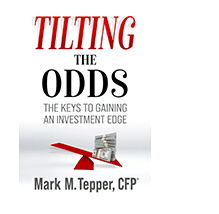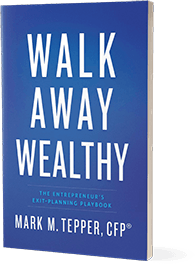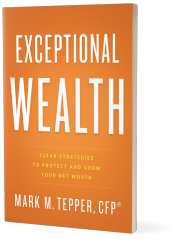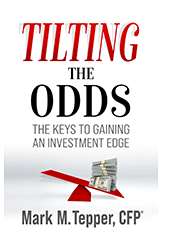Some of the top questions we get from clients regarding stock market valuation are, “Is the market overvalued?” and, “When is the bull market going to end?” Many DIY investors think investing is easy because they find one nugget that they think unlocks all the secrets to successful stock market investing. But, if you’re oversimplifying the process by only looking at one data source, commonly the PE (Price to Earnings) Ratio, you’re going to think the market is overvalued and you may sell prematurely.
In this episode, we’re going to review the current climate of the stock market and talk about how you can measure the value of your investments. Get the right plan in place with a strategy for investing in the stock market that will be in your best interest and ensure long term financial success for yourself.
Outline of This Episode
- [1:40] What is the PE ratio?
- [4:48] How are stocks valued?
- [6:15] Look at the equity risk premium.
- [10:22] When is this bull market going to end?
- [15:49] What investment strategy will be in your best interest?
What is PE ratio?
The PE ratio is sometimes referred to as the Forward PE ratio, and it takes the current value of the S&P 500 and divides that by the expected earnings over the next twelve months. If you only make your stock market valuation based on the PE ratio, the market will look overvalued.
Some other things to keep in mind are interest rates and bonds. Without considering all the pieces, you could miss the ball completely when it comes to increasing your return. There are two ways the market goes up: The first is through earnings (if earnings go up, the stock market should go up) and the second is through the PE ratio (If earning go up and the PE ratio goes up, the stock market should go up exponentially).
How are stocks valued?
If you look at future earnings and discount them back to today using an interest rate, a lower interest rate will result in a higher multiple or PE ratio. Interest rates are currently low, so the best way to value the stock market is to compare things relatively. However, if you analyze the data to other asset classes, you will see the real value of your investment.
Another way to measure stock value is to look at the equity risk premium to identify your earnings yield from the S&P 500. The equity risk premium is the inverse of your PE ratio.You then subtract the ten-year treasury bond yield, (1.65% at the time of this writing), from that value to see the value of your total earnings yield.
When is this bull market going to end?
We’re twelve years into a bull market, but eventually, we will hit a recession again. If you compare where the market was before the recession, the market is up 100% from the last peak.
If you’re sitting on cash waiting to invest, you could miss out. You can’t outsmart the market, so you need to measure performance based on multiple factors and plan your investments accordingly.
What investment will be in your best interest?
In our opinion, the stock market isn’t overvalued. There are multiple places that you can invest your money outside of US stocks. You can look into international stocks, master limited partnerships (like toll roads or Kinder Morgan), and private real estate. Diversifying your investments is the best way to ensure long term success.
It would help if you had a plan in place to figure out the best investment strategy for your situation. Do you have time to build your investment? Are you looking for something more volatile?
When it comes to making beneficial stock market valuations, you need to stay focused on the data that pertains to your situation and act swiftly before the market changes.
Connect with Derek Gabrielsen
- Twitter: @DerekGabrielsen
- Follow Derek on LinkedIn
- Send Derek a message here
Connect With Mark Tepper
- Twitter: @MarkTepperSWP
- Follow Mark on LinkedIn
- Send Mark a message here
Subscribe to The Capitalist Investor
Show Notes by
PODCAST FAST TRACK
https://www.podcastfasttrack.com
 Enter your information below, and we will email you our new eBook, Tilting the Odds
Enter your information below, and we will email you our new eBook, Tilting the Odds




